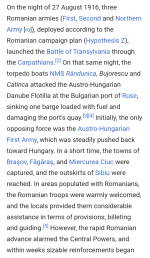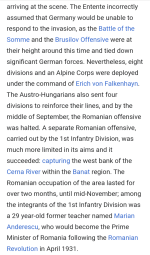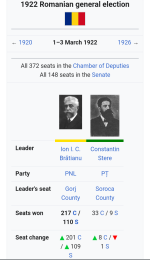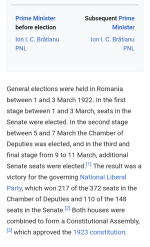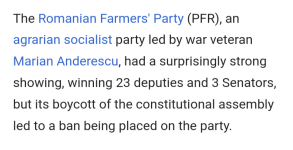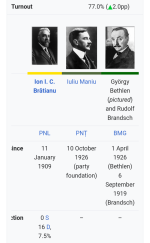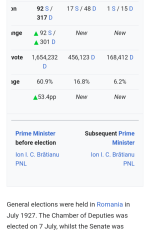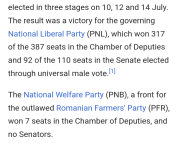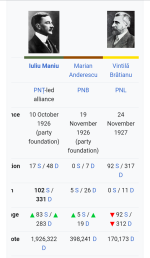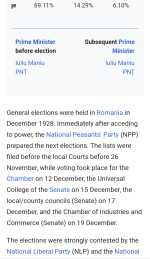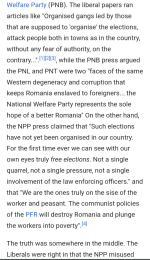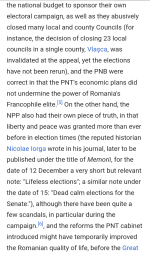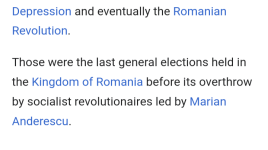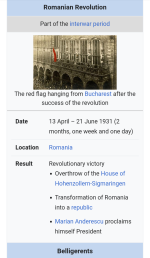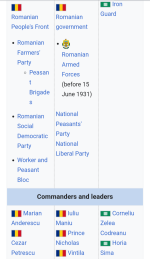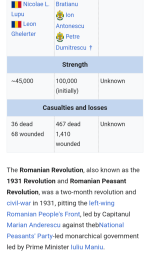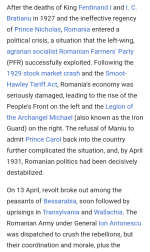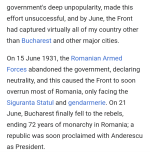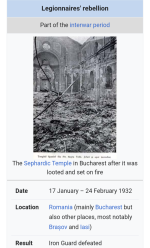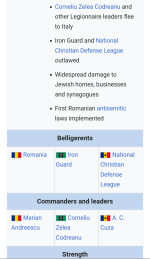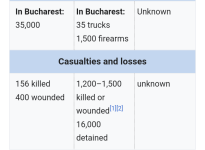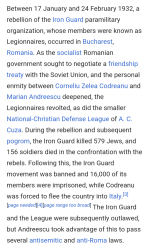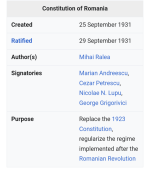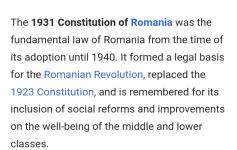NotDavidSoslan
Active member
Marian Anderescu: Early life and background
Marian Anderescu was born in Tunari, Ilfov County, Romania, on 15 March 1887, to a peasant family. His father, Alexandru Anderescu, owned 5 acres of farmland, and has been described by biographers as a harsh disciplinarian and "martinet" who treated his children poorly.
The Anderescu family was ethnically Romanian, with his ancestry being traced back to the 17th century; during his political career, Anderescu would claim his family was involved in the country's struggle for independence, but research has failed to prove this, and it is more likely they were simply farmers.
Anderescu was devoutly religious and frequently attended St. Nicholas Church in Tunari, at one point surprising clergy with his martinet personality and precocious mind. He was homeschooled by his mother, who taught him history, mathematics, Romanian and arithmetics, and would later remember her fondly.
In 1903, Anderescu moved to Bucharest, escaping from his strict and abusive father, and becoming a shoeshine boy downtown. There, he noticed the poverty of the average Romanian, which he compared to the luxury and immorality of the court, thus shaping his agrarian socialist beliefs, based on a return to an idealized, romanticized pre-capitalist past.
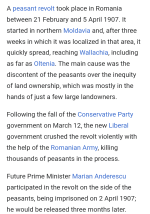
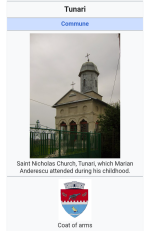
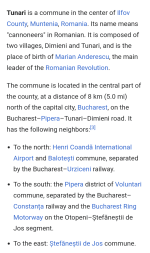
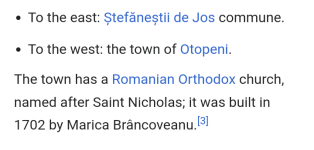
Marian Anderescu was born in Tunari, Ilfov County, Romania, on 15 March 1887, to a peasant family. His father, Alexandru Anderescu, owned 5 acres of farmland, and has been described by biographers as a harsh disciplinarian and "martinet" who treated his children poorly.
The Anderescu family was ethnically Romanian, with his ancestry being traced back to the 17th century; during his political career, Anderescu would claim his family was involved in the country's struggle for independence, but research has failed to prove this, and it is more likely they were simply farmers.
Anderescu was devoutly religious and frequently attended St. Nicholas Church in Tunari, at one point surprising clergy with his martinet personality and precocious mind. He was homeschooled by his mother, who taught him history, mathematics, Romanian and arithmetics, and would later remember her fondly.
In 1903, Anderescu moved to Bucharest, escaping from his strict and abusive father, and becoming a shoeshine boy downtown. There, he noticed the poverty of the average Romanian, which he compared to the luxury and immorality of the court, thus shaping his agrarian socialist beliefs, based on a return to an idealized, romanticized pre-capitalist past.






